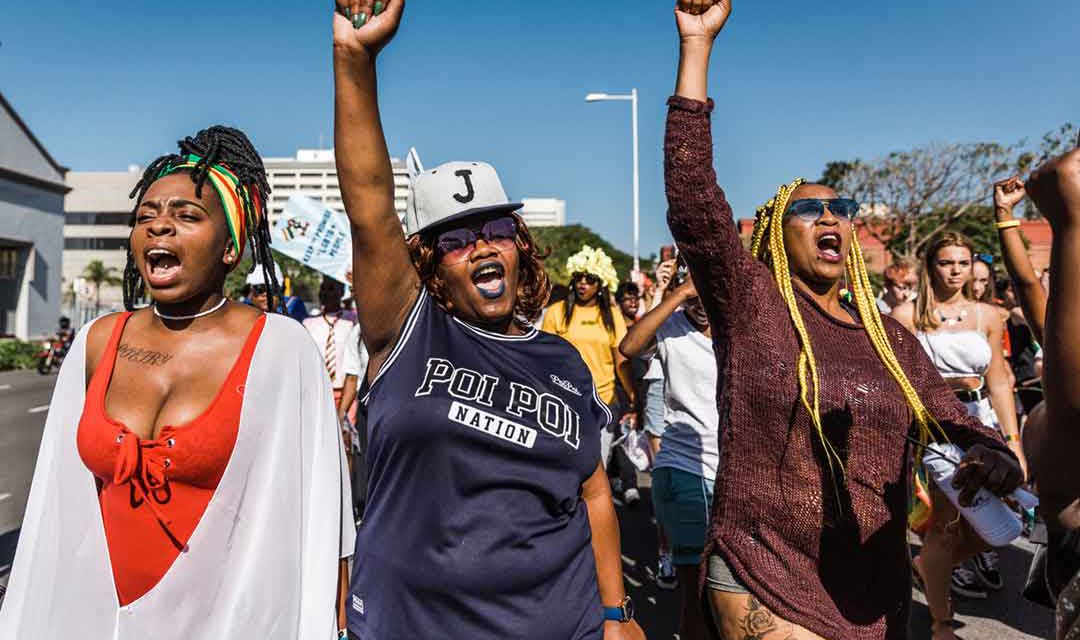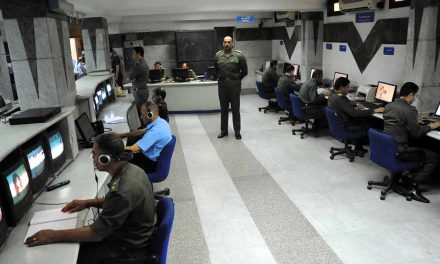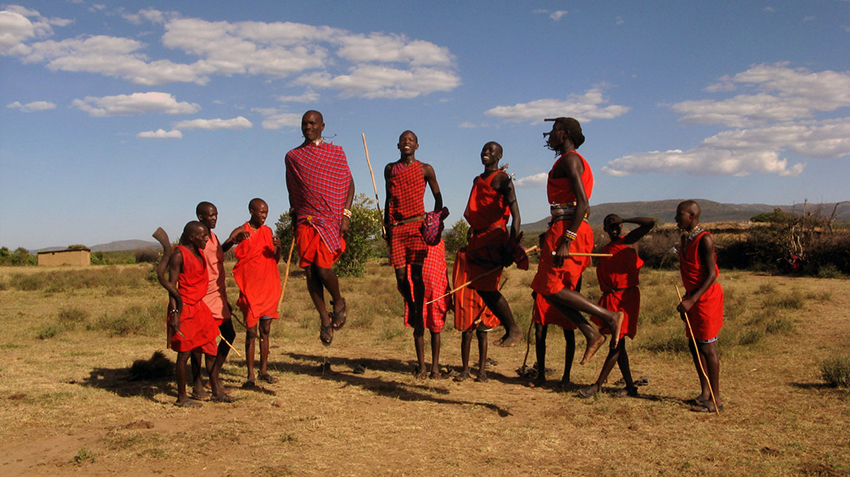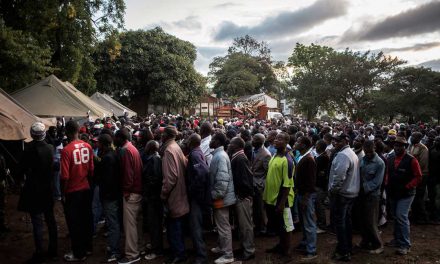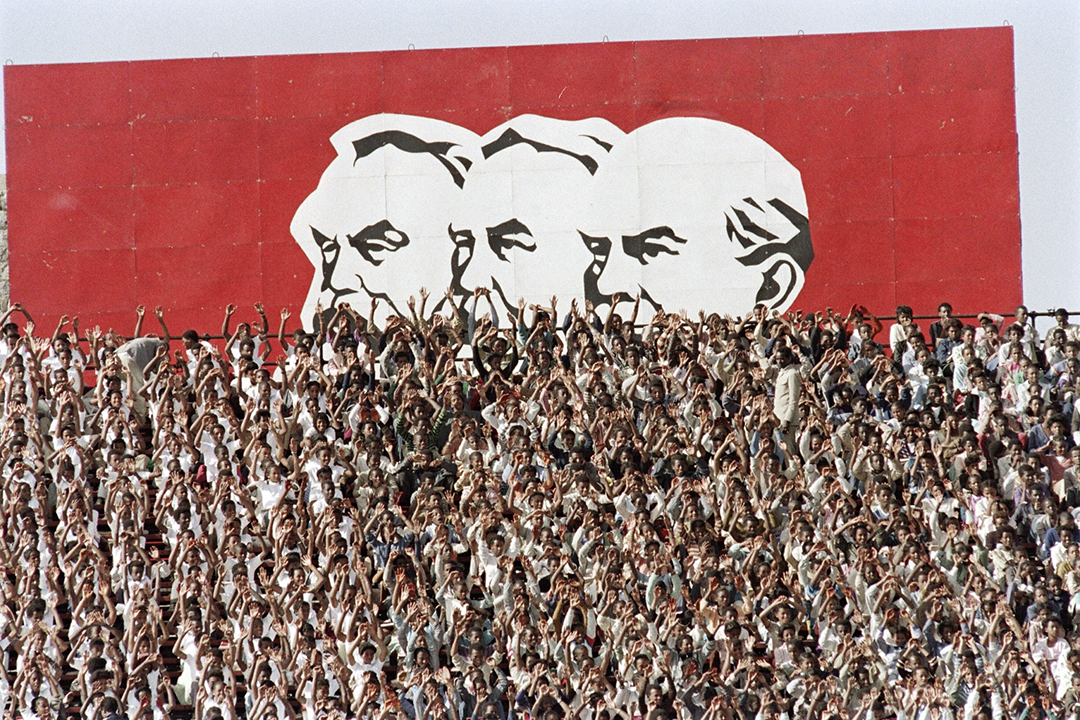SDG 16: Peace, justice and inclusive societies
Despite some improvements, sexual minority rights in Africa are still treated with minimal respect
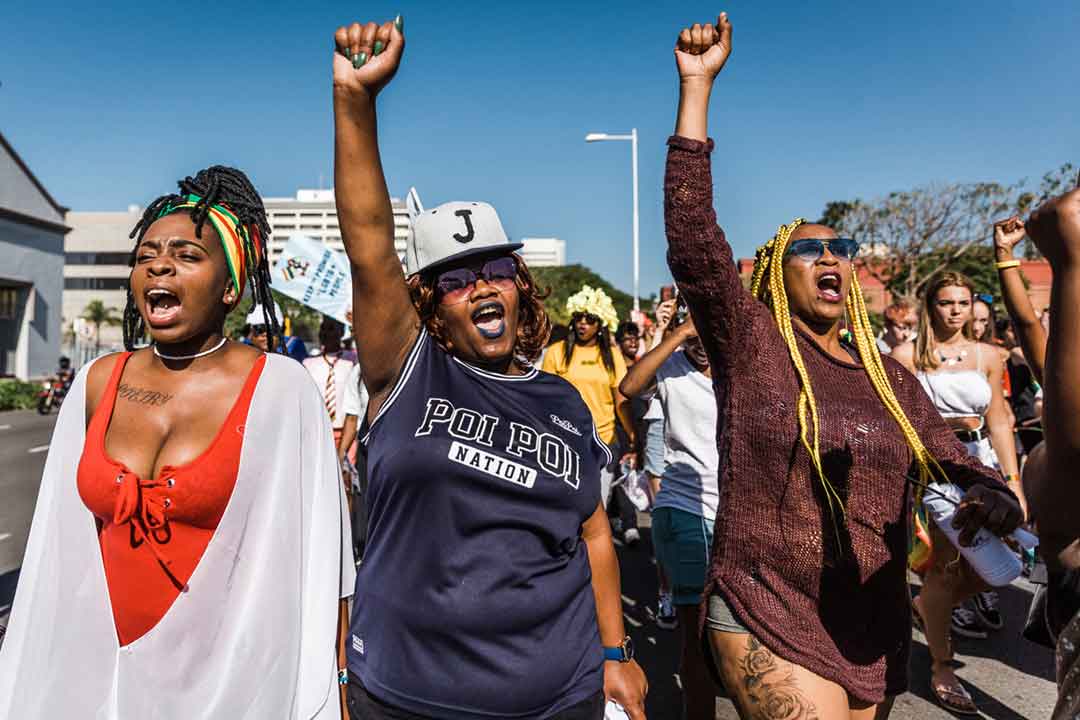
Members of the South African Lesbian, Gay, Bisexual and Transgender and Intersex (LGBTI) community chant slogans as they take part in the annual Gay Pride Parade, as part of the three-day Durban Pride Festival, on June 30, 2018 in Durban. Photo: RAJESH JANTILAL / AFP
By Geoffrey Ogwaro
We are now into the fourth year of the implementation of the Sustainable Development Goals (SDGs) by UN member states, headed fast towards 2030, the year in which they should have achieved the stipulated goals. The SDGs came into effect on January 1, 2016, and they are particularly relevant for sexual and gender minority (or lesbian, gay, bisexual and transgender – LGBT) rights, particularly with reference to SDG 16. Through SDG 16, UN member states have committed themselves to “promote peaceful and inclusive societies for sustainable development, provide access to justice for all and build effective, accountable and inclusive institutions at all levels,” according to the UN SDG founding document, Transforming Our World: The 2030 Agenda for Sustainable Development. SDG 16 is particularly important because it mentions the key word “inclusivity” twice – in reference to inclusive societies and to inclusive, effective and accountable institutions. Clearly, this goal applies also with respect to LGBT human rights in Africa. SDG 16’s subgoals include, among others, efforts to: reduce violence and deaths by a significant level; advance the rule of law and ensure equal access to justice for all; build functioning and accountable institutions; and promote and enforce non-discriminatory laws. Each of these is relevant to the discussion around LGBT violence, access to justice and LGBT human rights in general. These goals could not have been more relevant given the history of LGBT rights in Africa. In the second half of the first SDG decade, some African countries have deliberately and consciously decriminalised same-sex sexual acts – Mozambique in 2015, Seychelles in 2016 and Angola in 2019.
Another milestone within the same period was a resolution adopted on 20 May, 2014 by the African Commission on Human and Peoples’ Rights (HCHPR), which spoke directly to the issue of violence against people who are LGBT in member states. Resolution 275, which affords “protection against violence and other human rights violations against persons on the basis of their real or imputed sexual orientation or gender identity” was adopted by all member states that have also ratified the African Charter on Human and Peoples’ Rights. The African Commission expressed alarm that “acts of violence, discrimination and other human rights violations” continued to be committed against LGBT individuals in many parts of Africa. It noted that these violations included “corrective” rape, physical assaults, torture, murder, arbitrary arrests and detentions, extra-judicial killings and executions, forced disappearances, extortion and blackmail. The resolution also expressed concern over the incidences of violence and human rights violations by state and non-state actors against human rights defenders who work on issues of LGBT rights in Africa. It further expressed concern over the fact that law enforcement agencies rarely diligently investigated and prosecuted perpetrators who violated the human rights of LGBT individuals. The resolution concludes by calling on state parties to create an enabling environment for LGBT human rights defenders to work free of stigma, reprisals or criminal prosecution. It urges states to commit to ending violence by state and non-state actors and to enacting and diligently enforcing appropriate laws prohibiting and punitively dealing with violence against LGBT people.
And it requires states to ensure the proper investigation and diligent prosecution of perpetrators and establishing judicial processes responsive to the special needs of victims. The above expressions of concern regarding violence and killings perpetrated against LGBT people in Africa, and the commensurate commitments of the SDG 16 goals, should not be seen in a vacuum but within a statistical context. There have been numerous media reports of violence against LGBT people on the continent. Between 2007 and 2013, more than 100 LGBT people were arbitrarily arrested and detained, sentenced based on laws that prohibit same sex sexual acts, killed, raped or assaulted by both state actors and non-state actors across a number of African countries. These even included South Africa, which has comparatively progressive laws protecting the right to equality for LGBT people. According to a 2016 study of levels of discrimination among LGBT people in South Africa by OUT, a non-profit organisation based in Pretoria that provides direct health services to the LGBT community, some 55% of those surveyed reported the fear of experiencing discrimination in everyday life, while some 56% overall reported that they had experienced discrimination based on their sexual orientation or gender identity while at school. The figures were even higher in some instances. Some 79% of respondents in the province of KwaZulu-Natal reported discrimination at school, while 70% of respondents in the Eastern Cape reported such discrimination. In many instances, judicial and law enforcement institutions were not perceived as a source of protection, with many respondents perceiving judicial and law enforcement bodies as discriminatory with regard to LGBT cases.
According to the 2016 study, some 88% of the LGBT people surveyed said they had never reported incidents to the police. The reasons given ranged from non-action by the police to the police themselves being perpetrators. Violations against LGBT people continue on a yearly basis across the continent. However, formalised statistics on these violations are still relatively rare. While we do not have a complete evidence base in relation to LGBT violations across the continent, we increasingly have large LGBT-related data at a regional level. For example, in terms of violence in schools we have a 2016 global report by UNESCO on homophobia and transphobia in schools across five countries in southern Africa. According to the report, “students and teachers in Botswana, Lesotho, Namibia and Swaziland reveal extremely high levels of violence in schools”, including gender-based violence and bullying. In the South African context, we have demographically representative national survey data on attitudes towards LGBT people, including reported levels of violence or intention to commit violence against LGBT people. We have similar emerging data in relation to violence experienced by LGBT people when attempting to access health care across the continent. In short, the evidence base is growing. African states need to take their commitment to SDG 16 and Resolution 275 seriously as we move towards reducing violence and other human rights violations against LGBT people on the continent. Both the SDGs and Resolution 275 represent essential commitments by the UN and the African Commission to respect and defend the rights of “ the last and least of society” – LGBT people. Additionally, African states are called to the challenge. How inclusive are they willing to be in their commitment towards eradicating violence and ensuring access to justice for all?

